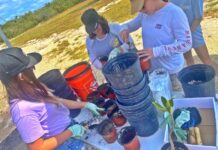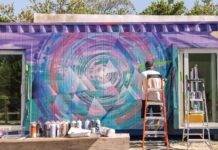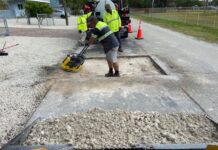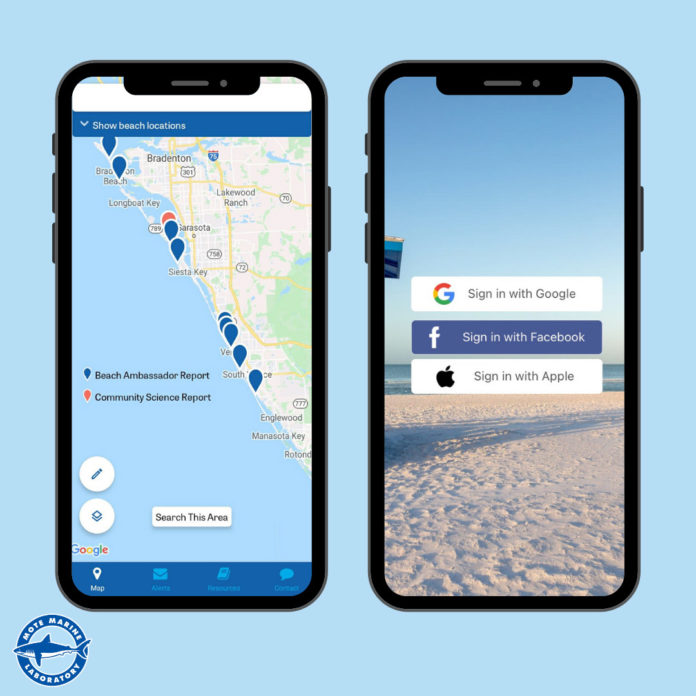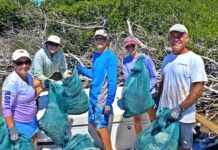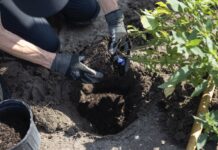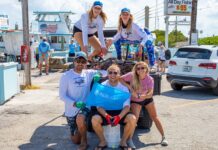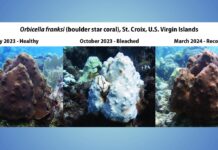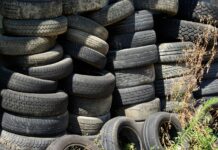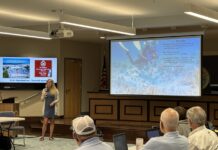Have you ever wanted to go to a beach but not known how conditions were right then? Or showed up and thought something seemed off about the local waters? In those cases, Mote Marine Laboratory’s Beach Conditions Reporting System (BCRS) would have helped you figure out what was going on in real time.
“The BCRS is a website (visitbeaches.org) and accompanying mobile app that collects and disperses beach condition reports from participating locations along the coast of Florida and Alabama,” said Mote social media and community outreach manager Allison Baird. “The BCRS is dependent on trained volunteers (a.k.a. Beach Ambassadors) for daily conditions reports that are provided to the public via the website and app.”
Think of it like the popular mapping app Waze, but for the water. Just like satellites provide information on traffic flow on roads, BCRS automatically pulls in important official weather data. This tells users about things like air temperature, weather conditions, UV index, sunrise/sunset times.
Then, just like drivers mark where an accident or speed trap is on a road, Beach Ambassadors can submit reports on things like surf conditions, crowds, debris, water color, beach flag color, and more. This crowd-sourced data is collected and combined with the official data to give a complete picture of what the beach is like at that moment.
Users can even find information on beach/park amenities, see photos, and access additional governmental resources including information from Florida Fish and Wildlife Conservation Commission (FWC), National Oceanic & Atmospheric Administration (NOAA), Florida’s Department of Health (FDOH), and more.
In Florida especially, the program also includes information on any respiratory irritation and dead fish observed, which are commonly associated with red tide. The aim is to help consumers make informed decisions, protect their health, and improve their overall beach experience, Baird said.
After the reports are collected and shown, Mote and FWC compile the data for use in scientific research and decision making.
“Those that make reports are making a huge difference in both science and their community,” Baird said.
BCRS aims to be your one-stop shop for all relevant beach information. The mission of the program is to provide accurate information on all the conditions that can affect a beach-goer’s experience and safety. Results are easily accessible to anyone on the website (visitbeaches.org) or by downloading the BCRS-Mote Marine Laboratory app to your mobile device. The user-friendly interface allows you to view reports made for all participating locations and stay up to date on daily beach conditions and the status of any red tide events, Baird said.
BCRS also helps visitors and the community play an active part in community science by submitting their own simple reports via the BCRS Community Science Portal.
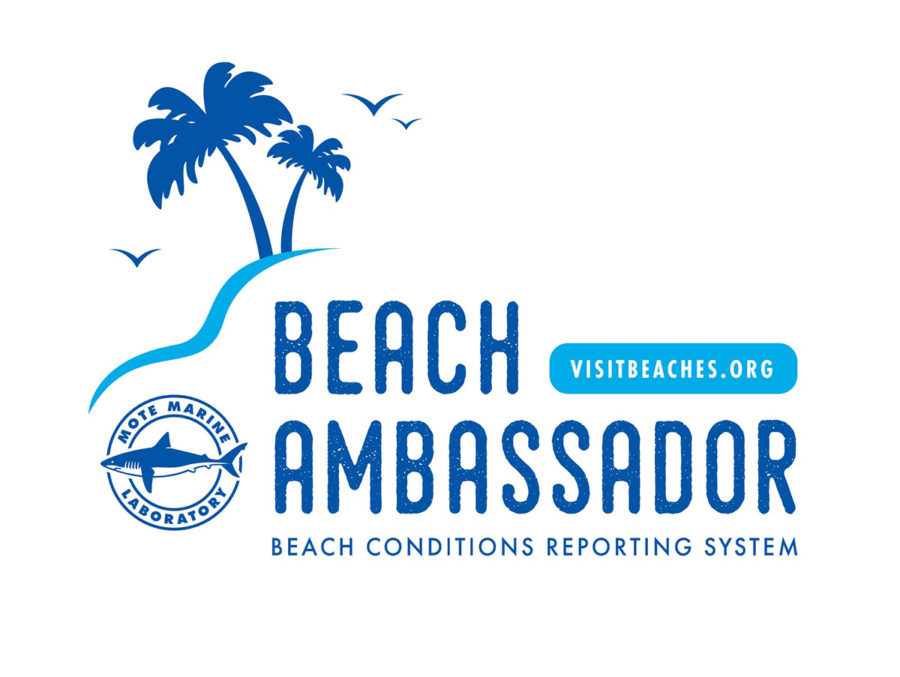
Now, Mote has expanded the program into the Keys and is recruiting Beach Ambassadors to volunteer and train on how to submit accurate observations. Mote wants to measure water quality along our coasts, because it affects the local environment and community so deeply.
“The more we can effectively monitor beach conditions, the better we can understand our surrounding environment from a scientific and tourism perspective!” Baird said.
If you’re interested in becoming a Beach Ambassador and contributing to Mote’s BCRS, email Baird at abaird@mote.org or Aspen Cook, Mote’s Outreach Specialist, at acook@mote.org.
